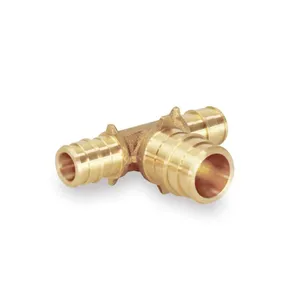Understanding Brass Instruments Types
Brass instruments are a vital component of any musical ensemble, combining rich sounds with the ability to perform both melody and harmony. Made primarily from brass, these instruments vary greatly in shape, size, and sound, making them suitable for a wide range of musical genres. In this guide, we delve into the various types of brass instruments, providing insights that will enhance your understanding and appreciation of these remarkable musical tools.
Types of Brass Instruments
Brass instruments come in several types, each designed to produce unique sounds and cater to different musical styles. Here are some of the most prevalent types:
- Trumpets: Known for their bright, piercing sound, trumpets are commonly used in orchestras, bands, and jazz. They are typically made of brass tubing and have three valves to alter pitch.
- Trombones: Distinctive for their slide mechanism, trombones produce a powerful and robust sound. They come in various versions including tenor, bass, and alto trombones, each designed for different musical ranges.
- Tubas: The largest brass instrument, the tuba plays a crucial role in providing bass support. It is characterized by its deep, resonant tones and is often used in orchestras and marching bands.
- French Horns: With a circular shape, the French horn produces a warm and mellow sound, essential for orchestral music. Its intricate design includes a double set of valves that allow for complex sound changes.
- Baritones and Euphoniums: Both are known for their rich tonal qualities and are commonly found in concert and military bands, with the euphonium often regarded as the ‘singing’ brass instrument.
Features of Brass Instruments
Each type of brass instrument boasts unique features that influence their sound and playability. Understanding these features can help musicians select the right instrument for their needs:
- Valves: Most brass instruments are equipped with valves that allow for quick changes in pitch and intonation. The configuration and type of valves can significantly affect the instrument's playability.
- Slides: Instruments like the trombone utilize a slide mechanism instead of valves. This allows for smooth glissandos and unique tonal effects that are characteristic of the trombone.
- Bore Size: The bore size, or the diameter of the instrument's tubing, influences the sound projection and volume. Larger bores typically produce a louder and deeper sound.
- Material Quality: The quality of brass used can affect tonal warmth and overall sound. Many professional instruments are made from higher-grade metals like gold brass or yellow brass, yielding superior acoustic properties.
Applications of Brass Instruments Types
Brass instruments are incredibly versatile, finding their place in various musical settings:
- Orchestras: Brass instruments like trumpets, horns, and trombones provide essential harmonic and melodic contributions in symphonies and concertos.
- Marching Bands: The powerful sound of tubas and trumpets is crucial in parades and sports events, where projection and audibility are needed.
- Jazz Ensembles: Trumpets and trombones have become staples in jazz, where improvisation and expressiveness are key to the genre.
- Concert Bands: Mixed ensembles utilize a range of brass instruments to create a full and balanced sound, supporting various soloists and compositions.
Choosing the Right Brass Instrument
When considering which brass instrument to play, there are several factors to take into account:
- Sound Preference: Consider the type of sound you are drawn to. Do you prefer the bright sound of a trumpet, or the mellow tones of a French horn?
- Playing Style: Some instruments are better suited for solo performances (like the trumpet), while others excel in group settings (like the tuba).
- Physical Considerations: The size and weight of the instrument should match your physical capability. For younger musicians or beginners, starting with smaller instruments like the cornet or euphonium may be advantageous.
- Budget: Finally, consider your budget. Brass instruments can vary in price significantly, with both student and professional models available.







































